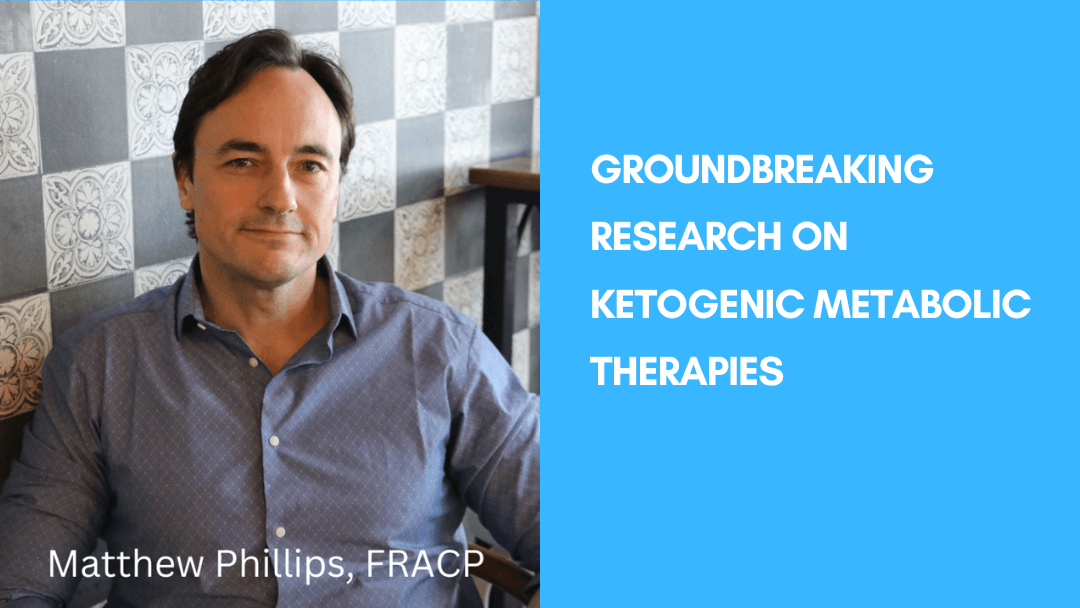By Chris S. Cornell
As a seasoned internist and a strong advocate for metabolic health, Dr. Annette Bosworth has become a distinguished figure in the world of nutrition, renowned for her expertise in the transformative power of the ketogenic diet. The author of acclaimed books such as Ketocontinuum: Consistently Keto Diet for Life, Dr. Bosworth is also celebrated for her engaging and informative videos on her YouTube channel, which boasts over half a million subscribers. Her journey in medicine has led her to challenge conventional wisdom and embrace a nutrition-centric approach to combating chronic diseases.
Dr. Bosworth's pioneering work extends beyond the pages, focusing heavily on the crucial role of metabolic markers, particularly the Hemoglobin A1C test, in predicting life expectancy and managing chronic illnesses. In a world where average glucose levels have become a silent harbinger of health issues, her advocacy for the ketogenic diet has emerged not just as a means for weight management, but as an important tool in restoring and maintaining overall health.
Central to Dr. Bosworth's approach is the importance of monitoring, with a particular focus on ketone and blood glucose levels, to help patients and coaching clients improve metabolic disease, lose body fat, and reverse or manage a wide range of other conditions, including Emphasizing the power of data, Dr. Bosworth advocates for the use of monitoring tools to track ketone and glucose levels, offering individuals insights into their metabolic health.
I recently had the opportunity to speak to Dr. Bosworth about the ketogenic diet and how continuous monitoring may help revolutionize the way we understand and apply this versatile diet for a wide range of lasting health benefits.
Unlocking the Power of the Ketogenic Diet for Optimal Health
In the realm of internal medicine, the quest for peak brain performance and metabolic health often leads to complex solutions. Dr. Bosworth, an expert in this field, has discovered that sometimes, the most profound answers lie in simplicity – such as the ketogenic diet. Her journey into this dietary approach began not in a laboratory or a clinic, but from a personal challenge that transformed her mother's battle with cancer.
"The ketogenic diet was an epiphany in my practice," Dr. Bosworth shares. "Initially, I was skeptical, thinking it was just another health fad. But when I started looking deep into the science, I discovered its powerful impact on the mitochondria, the powerhouses of our cells."
Dr.Bosworth’s mother, suffering from chronic lymphocytic leukemia, was the catalyst for this revelation. Faced with the grim effects of chemotherapy, Dr. Bosworth decided to supplement her mother's treatment with a ketogenic diet. The results were astounding. "In six weeks, her condition improved dramatically, beyond what we expected from chemotherapy alone," Dr. Bosworth recalls. "It was then I realized the potential of a ketogenic diet in repairing and rejuvenating at a cellular level."
Dr. Bosworth wrote a book about this shared experience with her mom, titled Any Way You Can: Doctor Bosworth Shares Her Mom's Cancer Journey: A Beginners Guide to Ketones for Life.
Beyond cancer, Dr. Bosworth has seen the ketogenic diet's transformative effects on various aspects of health. "It's like resetting the age of your cells," she explains. "The diet reduces oxidative stress and inflammation, which are at the core of many chronic diseases. This approach has shown remarkable results in lowering blood pressure, improving mental health, aiding in weight loss, and even managing autoimmune disorders.”
Dr. Bosworth emphasizes the diet's potential to enhance brain function, particularly in healing or maintaining peak performance. "There's nothing better than a ketogenic state for the brain, especially when repairing injuries or aiming for high performance," she asserts.
The key to the ketogenic diet, according to Dr. Bosworth, lies in its ability to shift the body's metabolism. "By reducing glucose intake and entering a state of ketosis, we wring out the excess inflammation. This process not only lowers blood pressure but also improves overall mitochondrial health," she states.
Dr. Bosworth's experience and research into the ketogenic diet paint a hopeful picture. "It's more than a diet; it's a pathway to reclaim health and vitality," she concludes, advocating for its broader application in tackling the rising tide of metabolic diseases. As we step into an era where chronic illnesses are prevalent, Dr. Bosworth's insights offer a promising direction for those seeking to restore their health through dietary intervention.
The Ketogenic Diet: A Key to Managing Blood Pressure and Sustaining Health
Dr. Annette Bosworth's exploration of the ketogenic diet revealed its multifaceted benefits, particularly in managing blood pressure and sustaining long-term health. Her insights provide a blueprint for understanding and effectively implementing this powerful dietary strategy.
"The reduction in blood pressure on a ketogenic diet is almost immediate," Dr. Bosworth explains. "Within just ten days, most patients see a noticeable drop. This is largely due to the decrease in circulating glucose and fluid, which reduces the overall pressure within blood vessels." This simple yet profound mechanism showcases how dietary changes can significantly impact cardiovascular health.
However, the journey to achieving and maintaining ketosis is not without its challenges. Dr. Bosworth identifies the key hurdles people face in this process. "The initial phase of entering ketosis is relatively straightforward – cut the carbs, and your body starts producing ketones. But the real challenge lies in staying in ketosis long-term."
Dr. Bosworth highlights the psychological aspects of sustaining a ketogenic lifestyle. "The hardest part is often not the diet itself, but the behavioral changes that come with it," she notes. "The key to success lies in support and fellowship, helping individuals navigate the challenges of changing long-standing habits and coping with the social aspects of dieting."
When comparing ketogenic diets with low-carb and fasting approaches, Dr. Bosworth provides clarity. "While a low-carb diet can kickstart ketosis, it's the consistent, measurable state of ketosis that delivers the health benefits we're looking for," she states. She further clarifies, "Fasting should be approached with caution, especially in older individuals or those just transitioning from a high-carb diet. It's a powerful tool, but only effective when integrated into a well-established ketogenic routine."
Dr. Bosworth's approach to integrating time-restricted eating as a precursor to fasting further demonstrates her comprehensive understanding of metabolic health. "Time-restricted eating is a crucial step before fasting. It helps patients adapt to a new eating pattern, essential for long-term success," she explains.
Her dedication to guiding patients through the nuances of ketogenic dieting, from the initial carbohydrate reduction to advanced fasting techniques, reflects a deep commitment to personalized care. "Each step, whether it's reducing carbs or introducing fasting, is tailored to the individual's needs and their unique journey towards better health," Dr. Bosworth concludes.
The Role of Monitoring in Mastering the Ketogenic Diet
Dr. Bosworth's insights into the ketogenic diet highlight the critical role of measurement in both understanding and optimizing this dietary approach. Her expertise sheds light on how tracking ketone and glucose levels can empower individuals to manage their health more effectively.
"Measurement is the key to unlocking the full potential of the ketogenic diet," Dr. Bosworth asserts. She emphasizes the importance of tracking ketone levels, especially as the body adjusts to the diet over time. "Initially, the body spills a high level of ketones, but as it adapts, these levels stabilize. Monitoring these changes is crucial in understanding and maintaining the state of ketosis."
Dr. Bosworth advocates for the use of continuous glucose monitors (CGMs) alongside ketone testing for a comprehensive view of metabolic health. "Seeing the interplay between glucose and ketones throughout the day and night provides invaluable insights into how well your body is functioning," she explains. This data can guide dietary adjustments, helping individuals tailor the ketogenic diet to their unique metabolic needs.
She further elucidates the importance of morning measurements. "Testing first thing in the morning, before any activity, gives us the most accurate baseline of where your metabolism stands after a night's rest." This practice helps in assessing the body's natural metabolic state, guiding further dietary decisions.
Dr. Bosworth notes the transformative impact of real-time data on patient engagement and understanding. "When patients see the immediate effect of their dietary choices on their ketone and glucose levels, it's a powerful motivator. It demystifies the process and makes the diet's impact tangible."
She also addresses the potential misconceptions about the ketogenic diet and the importance of individualized approaches. "There's no one-size-fits-all in dieting. What's crucial is understanding how your body responds to different foods and adjusting accordingly. Continuous monitoring allows for this personalized approach."
In discussing the nuances of ketone levels, Dr. Bosworth offers a practical perspective. "Maintaining ketone levels in a moderate range is ideal for most people. Excessively high ketone levels can be just as inefficient as too low. It's about finding that sweet spot where your body functions optimally."
Dr. Bosworth's approach to the ketogenic diet is both scientific and empathetic, recognizing the importance of patient education and empowerment. "Understanding your own body's responses and learning to adjust your diet accordingly is the essence of a successful ketogenic journey," she concludes.
Dr. Bosworth's perspective on the ketogenic diet emphasizes the importance of personalization and understanding individual metabolic responses. Her insights provide a nuanced view of how the diet can be adapted to meet diverse health goals and conditions.
"Understanding your unique carbohydrate threshold is crucial for long-term success on the ketogenic diet," says Dr. Bosworth. She highlights that while a general guideline is to keep carbs low, the exact number can vary significantly from person to person. "Starting with a lower carb intake, like 20 grams or less, helps most people enter ketosis. From there, it's about finding your personal balance – how many carbs can you consume while still maintaining ketosis?"
This individualized approach is especially relevant for those with specific health conditions or those who have struggled with processed foods and weight issues. "For people who've had a history of poor dietary habits, staying in nutritional ketosis often requires stricter carb limitations, at least initially," she explains.
Dr. Bosworth acknowledges the challenges and frustrations that can come with navigating the ketogenic diet. "It's not a one-size-fits-all approach, and it requires patience and experimentation. The goal is to find what works for you, which can be a different journey for everyone."
She also notes the importance of muscle mass in determining one's carbohydrate tolerance. "As your body heals and muscle mass improves, you may find that you can tolerate more carbohydrates while staying in ketosis. But this is a gradual process, and there's no universal timeline."
Dr. Bosworth's patient-centered approach to the ketogenic diet is grounded in the belief that understanding and respecting individual differences is key. "Every person's body responds differently to dietary changes. The key is to listen to your body, monitor your responses, and adjust accordingly," she concludes.
Connect with Dr. Annette Bosworth:









